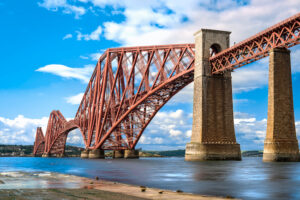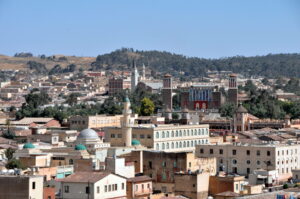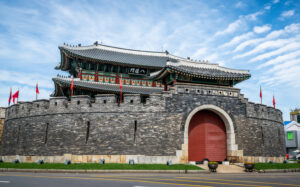| Registration Classification | cultural heritage |
| Registration Criteria | (1), (4) |
| Year of registration | 2015 |
The Forth Bridge, which spans the estuary of the River Forth in eastern Scotland, is a cantilever bridge that connects Fife and Edinburgh by rail at 2529m, it is the second longest cantilever bridge in the world but how did it become a world heritage site?
Here, a World Heritage enthusiast explains in simple terms why the Forth Bridge is a World Heritage Site. Read this and you will definitely learn more about the Forth Bridge!
What is the Forth Bridge?
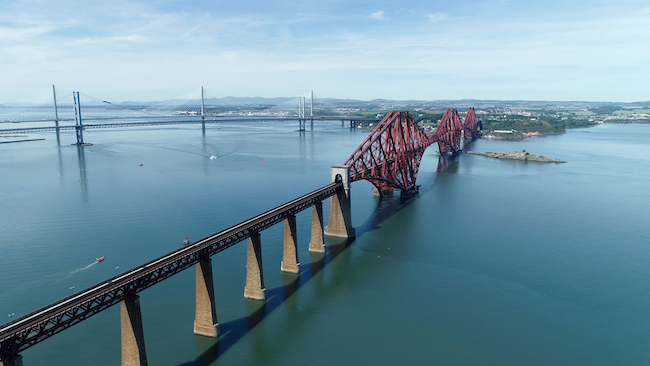
This railroad bridge, which crosses the Forth Estuary in Scotland, was the largest cantilever bridge in the world at 2529 meters when it opened in 1890. A cantilever bridge is a bridge that is stabilized by cantilever beams (cantilevers) that extend out from the piers on both sides.It is surprising that they are still in use today!
The reason why the Forth Bridge was built with cantilever bridges is that it went through many difficulties to reach its present form. However, there was an accidental fall of the bridge.Therefore, a stronger railroad bridge was required.
This bridge consists of three diamond-shaped cantilevers and a girder bridge supported by them.In an attempt to stabilize it anyway, more than 54,000 tons of mild steel was used as the material. Its appearance has earned it the nickname “the iron dinosaur,” and it is truly a monster left behind by industry.
For what reason is the Forth Bridge on the World Heritage List?
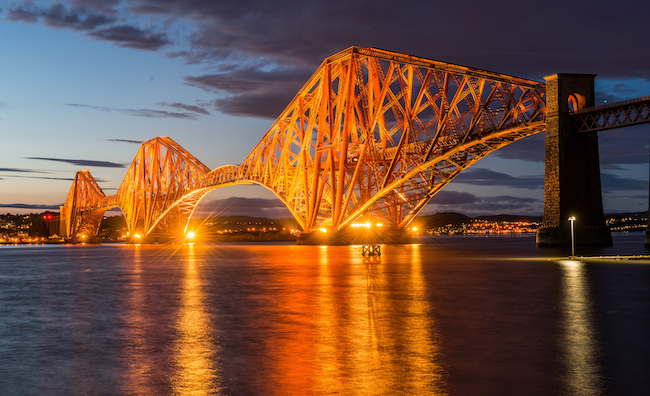


As a World Heritage Site, the following points were evaluated
Registration Criteria (i)
The Forth Bridge, with its massive and functional structure, is a masterpiece of industrial heritage.
Registration Criteria (iv)
The Forth Bridge is a good example of bridge design and construction, built at a time when railroads were the dominant form of land transportation. It is particularly appreciated for its use of mild steel, which was the most advanced material in the world in the 19th century.
In other words, it was amazing that such a huge railroad bridge could be built at the end of the 19th century! That’s what I mean.This construction is a must for lovers of industrial buildings.
In fact, his face has even appeared on Scottish bills! Was the bridge completed thanks to the efforts of Japanese engineers?
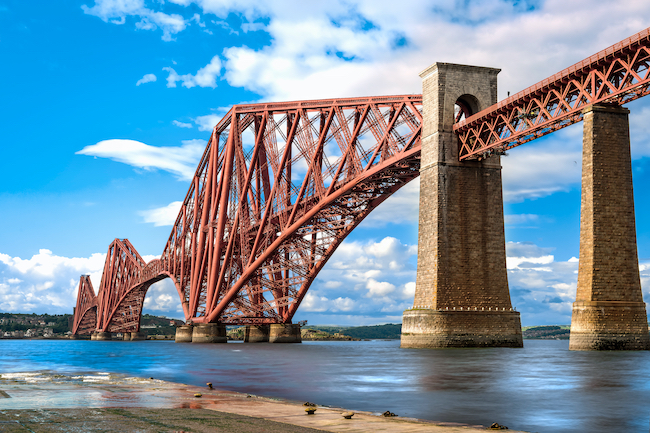


It is actually well known that the father of Japanese civil engineering, Yoshikazu Watanabe, was involved with the Forth Bridge.Watanabe studied civil engineering at the University of Glasgow, Scotland, and worked as an engineer. And he was involved in the Forth Bridge as a supervisor.
And to demonstrate the cantilever structure, I took a picture of myself hanging from the brass with John Fowler, who was the chief engineer, and that picture was used in a small way on an earlier 20 pound bill.This was also a rare case of a Japanese face being printed on a bill outside of Japan.
Conclusion and Thoughts of a World Heritage Maniac
Industrial heritage sites are hard to understand and their value is only appreciated when explained, but this one is called the “Iron Dinosaur,” and the power of the huge railroad bridge over the river is overwhelming!From a distance, it looks like a red Nessie….Only in Scotland.
By the way, if you want to see the Forth Bridge, you need to get off at North Queensferry Station on the north side or Dalmeny Station on the south side, but the south side has more hotels and restaurants with a view of the bridge, so this is recommended!By the way, if you want to take pictures of the bridge, it is better to take pictures in the afternoon because it is not backlit and you can take beautiful pictures.
*The content here is a discussion derived from research conducted by World Heritage enthusiasts. As for the data, interpretation differs depending on the media.
